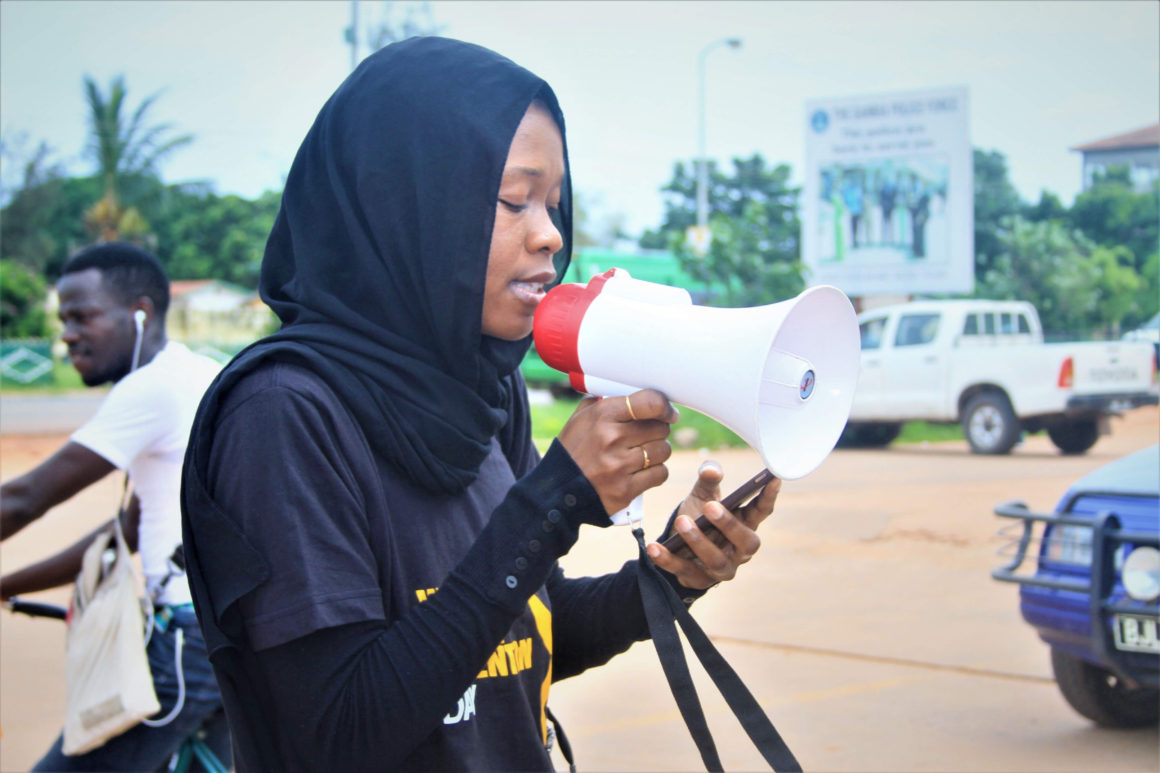Ngaima Sesay is a Mental Health Professional with special interests in trauma psychology and psychosocial approaches to understanding mental illness. In 2012, she began her career in mental health as a psychology lecturer, with the Psychology Department, at the University of the Gambia. Ngaima is a Psychosocial Support Officer for the Truth, Reconciliation and Reparations Commission (TRRC) in the Gambia. Her role centers on providing services that improve mental health and treat mental disorders.
To Ngaima, pursuing a health-focused career was a calling born from an innate desire to help people. She strongly believes that there is something satisfying about alleviating someone’s pain. Despite having considered multiple career paths and courses of study, her interests have always centered on health. While studying to become a medical doctor, she took her first psychology course and fell in love. Everything began to make sense at that point, it felt to her as though the missing puzzle piece she had been looking for had just been found! It was then that she knew that she wanted to enter the field of mental health.
What are you most proud of?
Starting a mental health organization, Organization for Psychosocial Innovation (OPI), which is geared towards raising awareness, providing free education, advocacy and support group programs in the Gambia. I began OPI because I felt there was a deficit in the area of educating and raising awareness on mental health issues and no organization that focused on the psychosocial aspect of mental well being in The Gambia. The support needed by people who experience mental health conditions and their families was also grossly inadequate, and still is. Starting OPI was quite challenging particularly because of the lack of human resource in the area of mental health. Nevertheless, I was determined to start this organization and was able to with my psychology students at University of The Gambia. By involving my students I was hoping to motivate and inspire some of them to pick up interest in the field while also providing mentorship for those who were genuinely interested in mental health.
What do you wish you had done differently?
Quite possibly a few things, but when I look back on how things have unfolded for me, maybe nothing at all. I am a firm believer in things happening for a reason so quite possibly everything that has happened has contributed to what and who I am. I have learned and grown immensely from things that I could have done differently. Besides, I still have a long way to go and I am still learning.
What are some of the biggest challenges you have faced? How did you overcome them? What are some of the lessons learnt?
Coming back to the Gambia with a background in mental health/psychology was extremely difficult. It was hard to find a job or ready-made niche to fit into, and not because it wasn’t available but because of the lack of understanding of the importance of psychology and mental health in every profession really. I decided to turn to academics (which has always been one of my dreams anyway).
What are some of the opportunities you see for women in health on the African continent?
There are numerous opportunities for women in health on the African continent. There are many health issues women suffer from, that need to be addressed, that have not been dealt with and are still on the back burner. Women’s involvement in the health sector in Africa would give them the opportunity to reform the health in Africa. Women specific health issues are under addressed at the moment so these are golden opportunities for us to get ourselves into, to make an impact. Having more women in the health sector, exploring these opportunities, will help to address specific challenges such as the high maternal mortality rate, women’s mental health, etc., and in so doing enable women to enhance general health in Africa.
What advice do you have for other women in health?
I would advise women to empower each other and give the younger ones an opportunity to be heard. I would also encourage women to create their own opportunities and not wait for it to be created before taking action or joining a cause. There are still many issues that need to be dealt with and we are the best advocates for the issues that we, and our fellow women, go through, so let’s persevere.


Leave a Reply